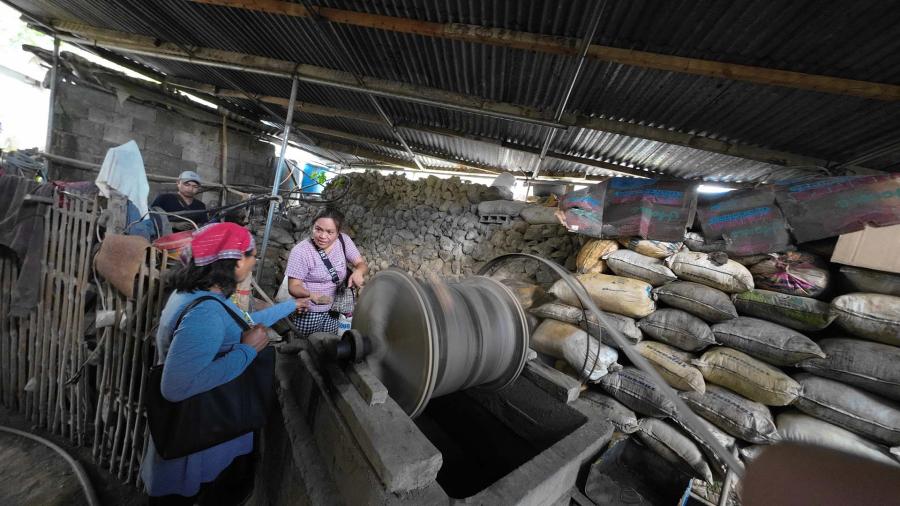
By Dev Kumar Sunuwar (Koĩts-Sunuwar, CS Staff)
The 16th World Social Forum, held under the banner "Another World is Possible," concluded on February 19, 2024, with a resounding message that Indigenous voices cannot be silenced in the fight for global justice and sustainability. While the five-day conference, the first of its kind to be hosted in Nepal, tackled a spectrum of social issues, a distinct theme emerged: the urgent need to address the unique struggles and aspirations of Indigenous communities worldwide.
Over 50,000 participants from 1,400 organizations representing 98 countries converged in Kathmandu to discuss issues like economic inequality, climate change, and human rights. A recurring concern resonated on the plight of Indigenous Peoples threatened by land dispossession, resource exploitation, and rights violations.
Panel discussions and workshops were among the hundreds of events carried out on topics including discrimination, gender, climate change, Indigenous Peoples’ rights, human rights, and other critical issues, offering a platform for diverse voices to come together. The heart of the event was Bhrikutimandap, which buzzed with activity in meeting rooms, assembly halls, and communication cafes.
Conceived in 2001 as a counterpoint to the elite World Economic Forum in Davos, Switzerland, the World Social Forum has consistently provided a platform for civil society organizations, social movements, trade unions, and individuals to challenge the current global order and envision a more just future.
“Since its inception, the WSF has served as a beacon of hope for those seeking a more equitable world. This year's forum highlighted the critical role of collective action in navigating the complex challenges we face together," said Ashok Bharati, founder and chairperson of the National Confederation of Dalit and Adivasi Organization.
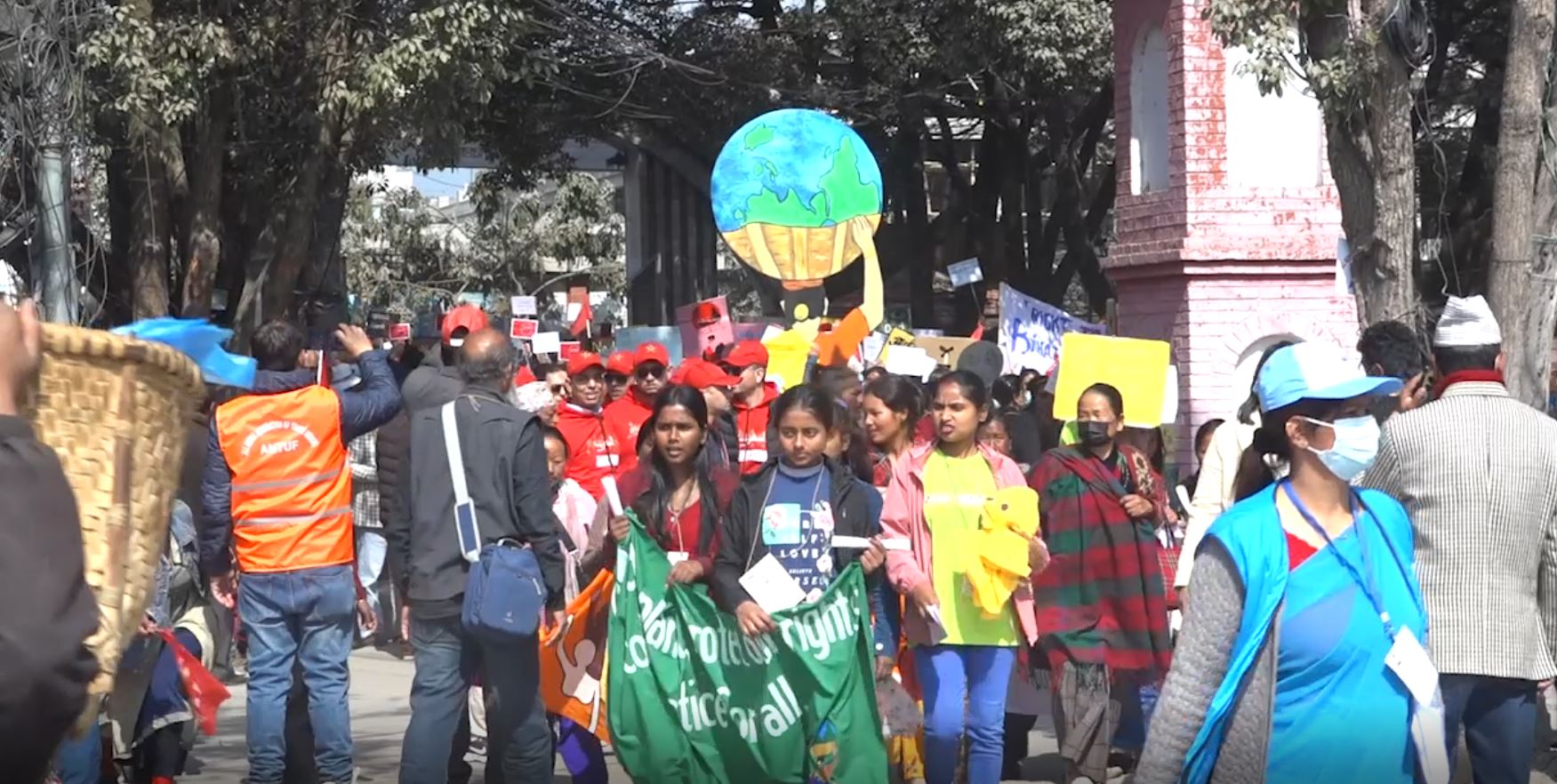
Side events organized by Indigenous Peoples’ organizations painted a stark picture of their lived realities. Speakers shared stories of displacement, limited access to resources, and violations of water and forest rights. They also addressed concerns over global poverty, natural disasters, food insecurity, and environmental crises.
Yashokanti Bhattachan, Vice President of the National Indigenous Women's Forum, pointed to the politicization of Indigenous Peoples’ issues and urged attendees to prioritize collective action over individual agendas. "Problems arise due to the politicization of Indigenous Peoples’ issues," she asserted. "We must stand together, united as Indigenous Peoples, not divided by individual agendas.”
Bhattachan’s words echoed the struggles faced by many Indigenous communities across Nepal and globally from navigating identity challenges to securing land rights. This rallying cry for unity highlighted the importance of building alliances and collaborating with other social movements.
Hiramoti Chaudhary, President of the Muktakamlari Vikas Manch, shed light on the plight of women forced into bonded labor. Her organization works to rescue and empower these women, offering hope for a better future.
Chanda Thapa Magar, an Indigenous women's rights activist, decried the lack of representation in decision-making bodies, linking it to missed opportunities and exploitation. "Indigenous voices must be included in wider discussions, given our innate connection to land and resources," she said.
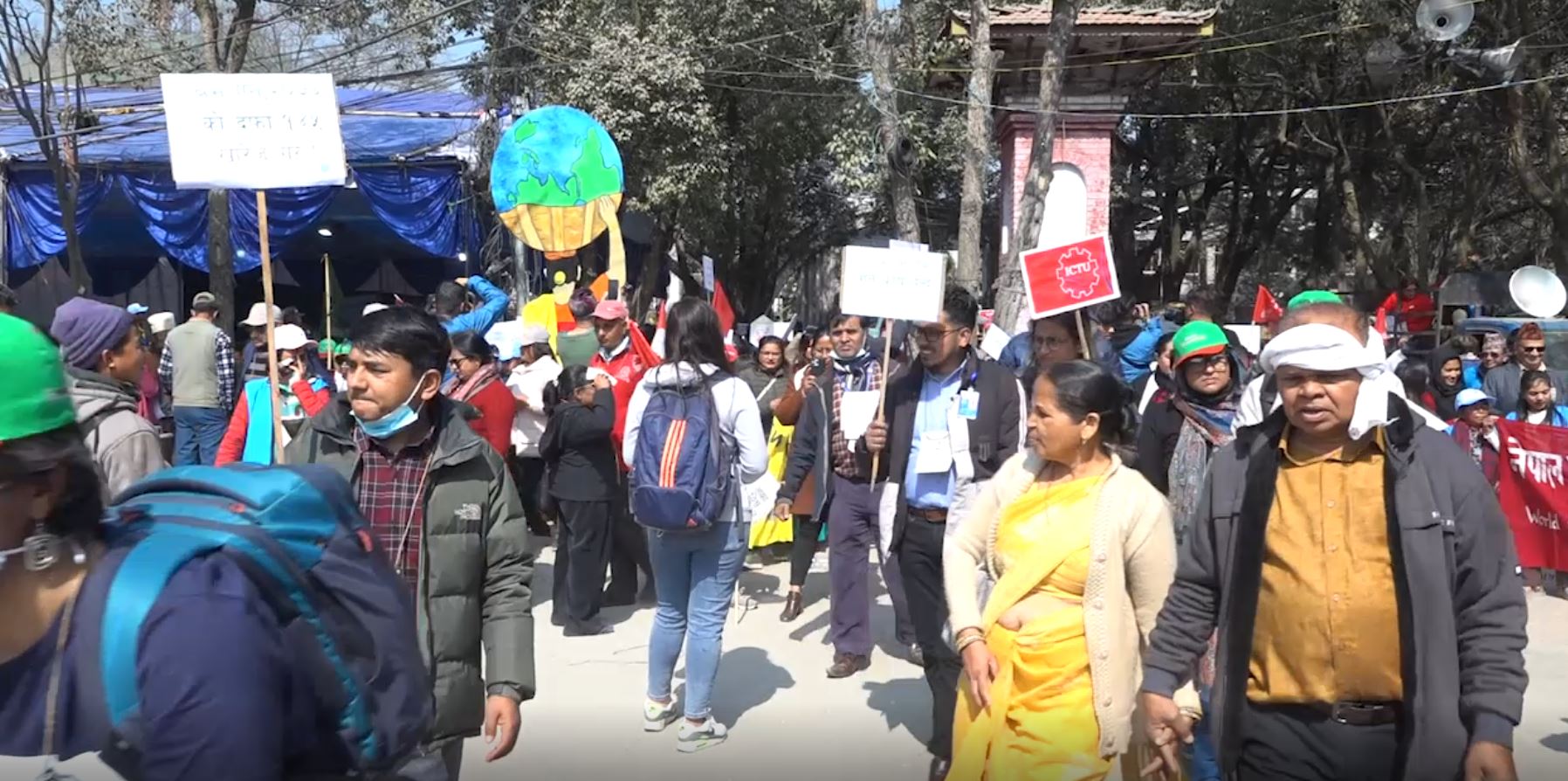
The National Indigenous Women's Forum organized a panel discussion titled "World Social Forum 2024 Nepal: Environmental Justice and Indigenous Peoples." Magar, who was a panelist, emphasized the need for Indigenous Peoples’ access to decision-making bodies to ensure they receive the rightful benefits from development projects.
The sentiment was echoed by Sushila Thapa Magar, representing the International Indigenous Women’s Forum, who highlighted the global nature of Indigenous displacement, driven by both state and commercial interests. She stressed the importance of coexistence and sustainable living, emphasizing that discussions often neglect Indigenous life's cultural and spiritual aspects.
Indigenous women participating in the forum shared their concerns about the impact of hydropower projects, national parks, and state development initiatives on their communities and livelihoods.
The Nepal Federation of Indigenous Nationalities organized a side event titled “Indigenous Peoples Call for Climate Action,” at which Dr. Felipe Melo, an expert on Indigenous rights from Brazil and researcher representing Nottingham Trent University, emphasized the crucial role Indigenous communities play in mitigating and adapting to climate change.
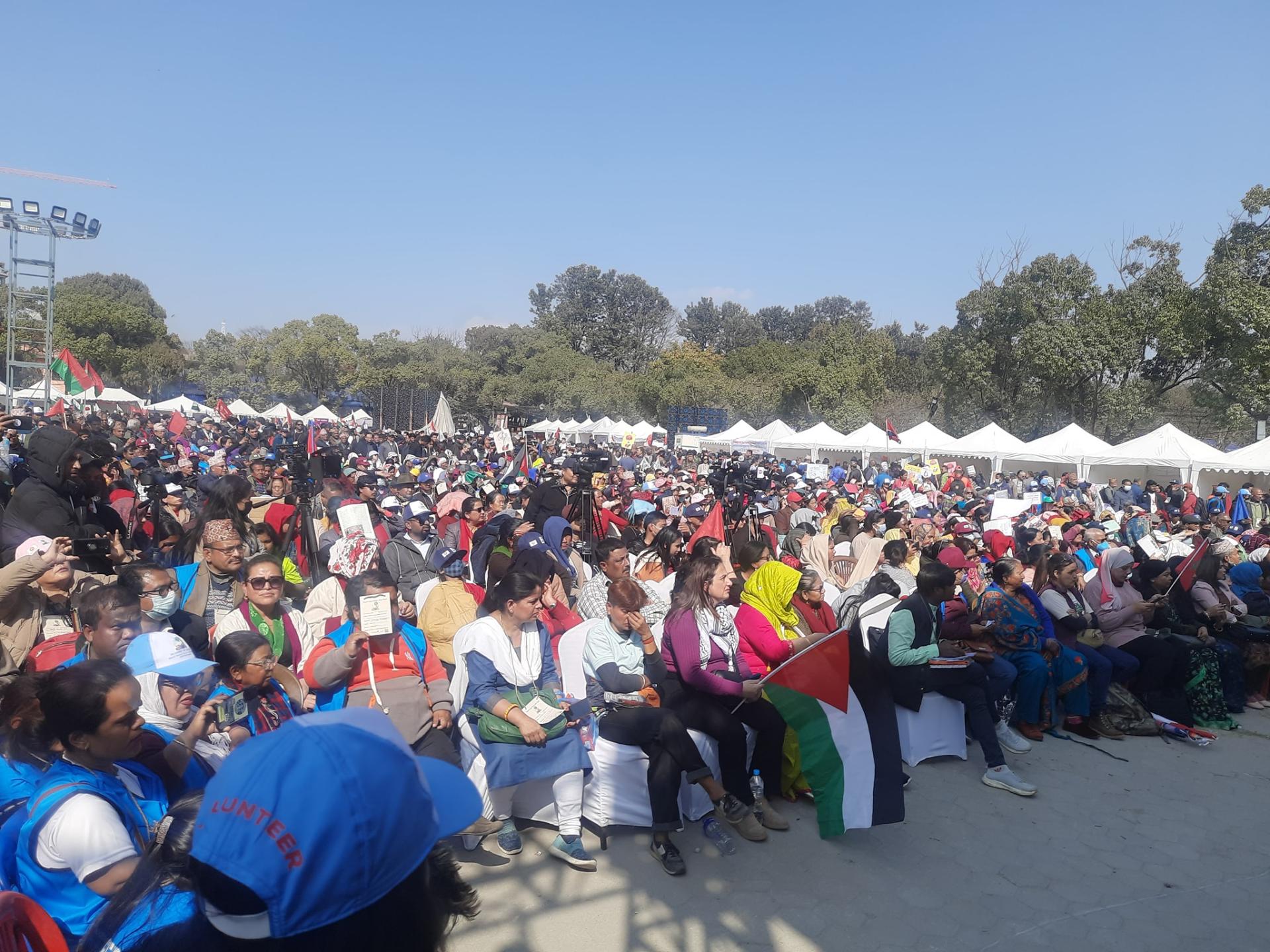
The Nepal Federation and the Center for Indigenous Peoples’ Research and Development co-hosted a panel session titled “Rights-based Conservation.” Moderating the session, Dr. Pasang Dolma Sherpa, Executive Director of the Center, said, “Indigenous Peoples have been protecting natural resources, biodiversity, and surrounding ecosystems for generations through customary institutions and self-governance systems. The present forest regimes in Nepal, however, are structured around top-down laws, policies, and programs with little space for Indigenous Peoples' voices."
Indigenous rights advocate Durga Yamphu urged revising existing policies to address restricted access to land and resources. Chinimaya Majhi, President of the Nepal Majhi Utthan Sangh, expressed grave concerns about the impact of modern development on the Majhi Indigenous Peoples, whose traditional fishing-based livelihoods face increasing threats. "Hydropower projects and other initiatives undertaken without our Free, Prior and Informed Consent are jeopardizing our very way of life," Majhi said, adding, "We demand a halt to unsustainable development such as the Sunkoshi Marine Diversion Project that disregards our fundamental rights and cultural heritage."
Chiring Wangmu Gurung, a researcher, presented the impact of climate change on Upper Mustang's tangible and intangible heritage, highlighting the challenges faced by communities whose cultural heritage lacks economic value.
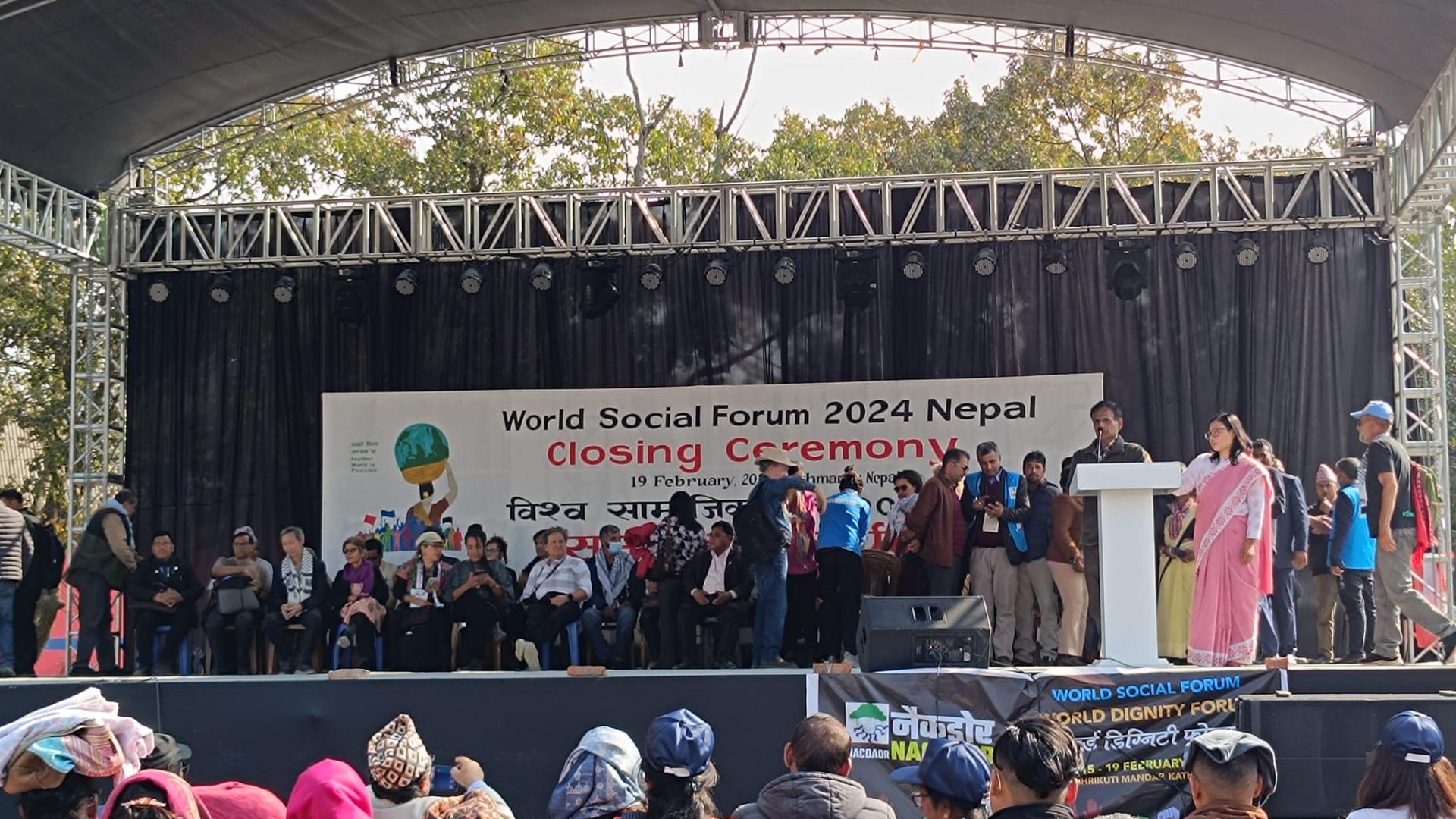
The Indigenous Women Legal Awareness Group organized an interaction on "Empowering Indigenous Women for Environmental Justice." The program shed light on the displacement of Indigenous communities due to the Tanahun hydropower project and Sivapuri National Park, emphasizing the critical role of women in advocating for their rights.
"Indigenous Peoples have been consistently denied their right to Free, Prior and Informed Consent in modern development initiatives," said Ritu Thapa Magar, an advocate with the Women’s Group. "This has led to displacement and disruption of their lives, with women often bearing the brunt of these impacts."
The program amplified the voices of these women, highlighting the specific challenges they face due to environmental and cultural injustices. Participants discussed land ownership issues, lack of access to resources, and the disruption of traditional practices.

The Federation of Indigenous Nationalities Films screened documentaries showcasing the struggles and resilience of Indigenous communities. These served as powerful tools for advocacy and raising awareness. Adding to the momentum, an Indigenous documentary was also screened at Bhrikutimandap. Federation President Purkhjit Raj emphasized the significance of the World Social Forum being held in Nepal, stating, "This international conference provides a unique opportunity to bring the issues faced by our communities to the forefront."
The events at the World Social Forum, while heavy on dialogue, transcended mere words to paint a vivid picture of the challenges faced by Indigenous Peoples, especially women and their communities. The World Social Forum served as a crucial platform for Indigenous Peoples to raise awareness and advocate for their rights. The hope is that their voices will not be silenced and that concrete actions will be taken to address their challenges, building a truly just and sustainable future for all.
